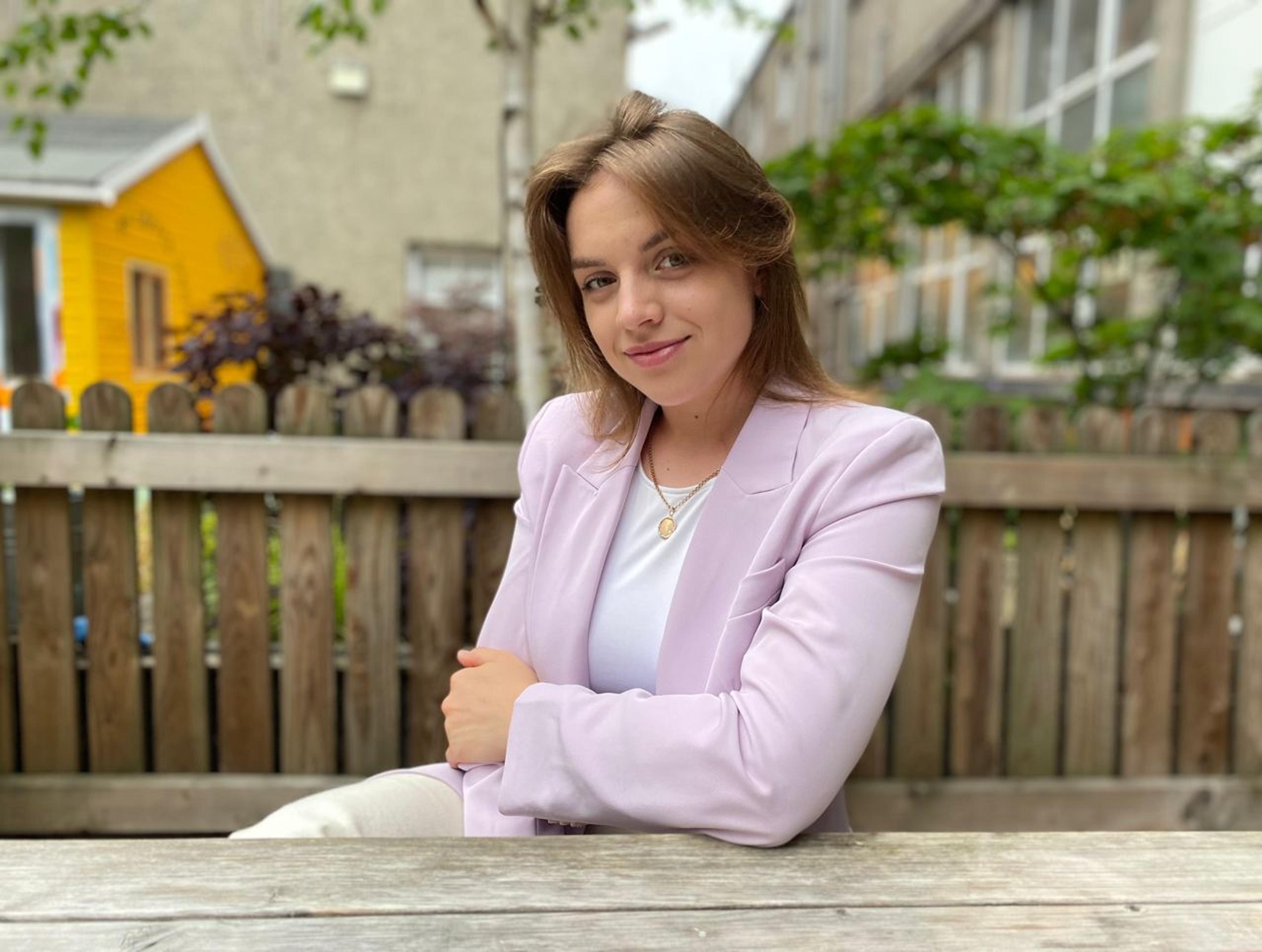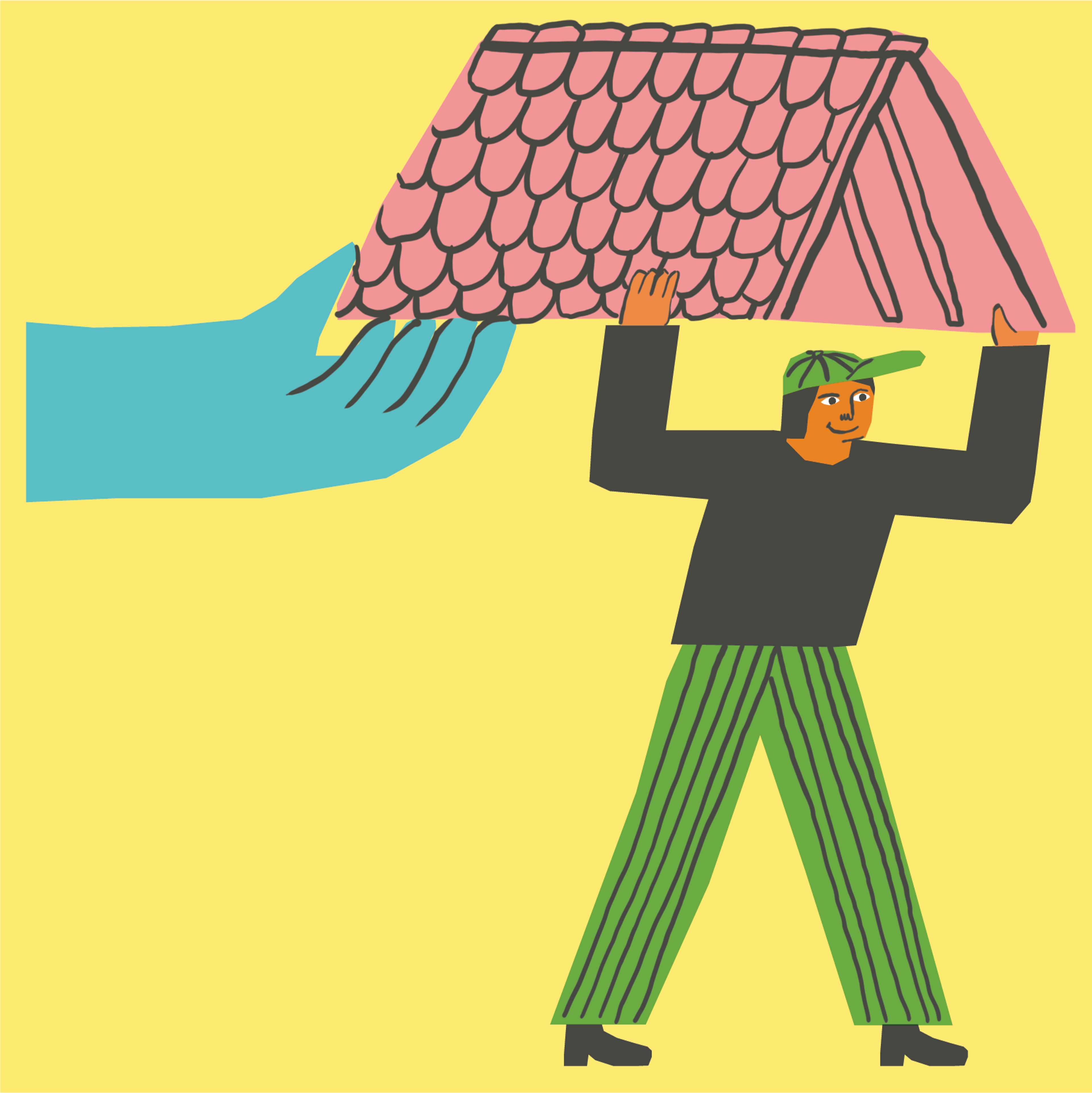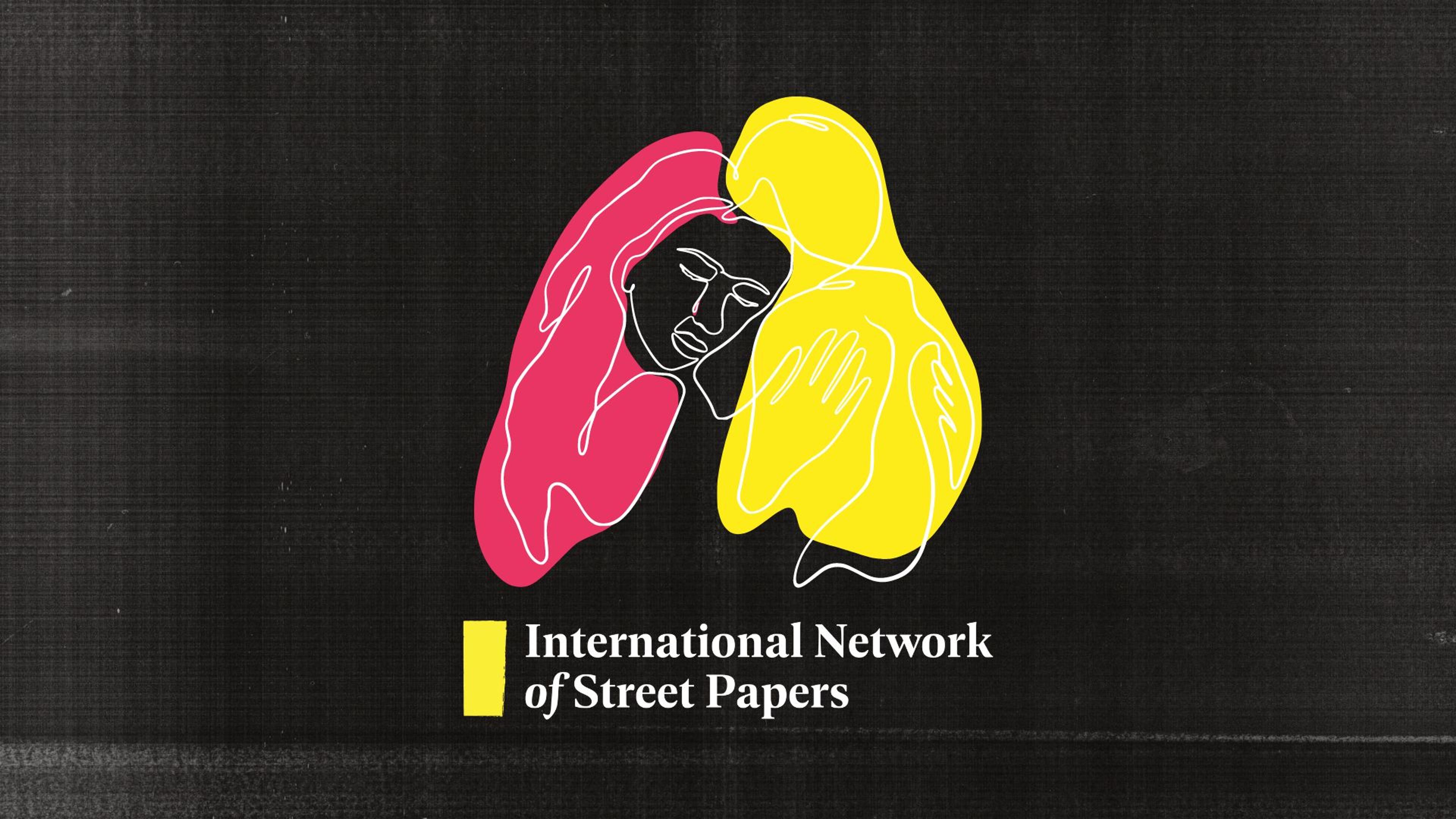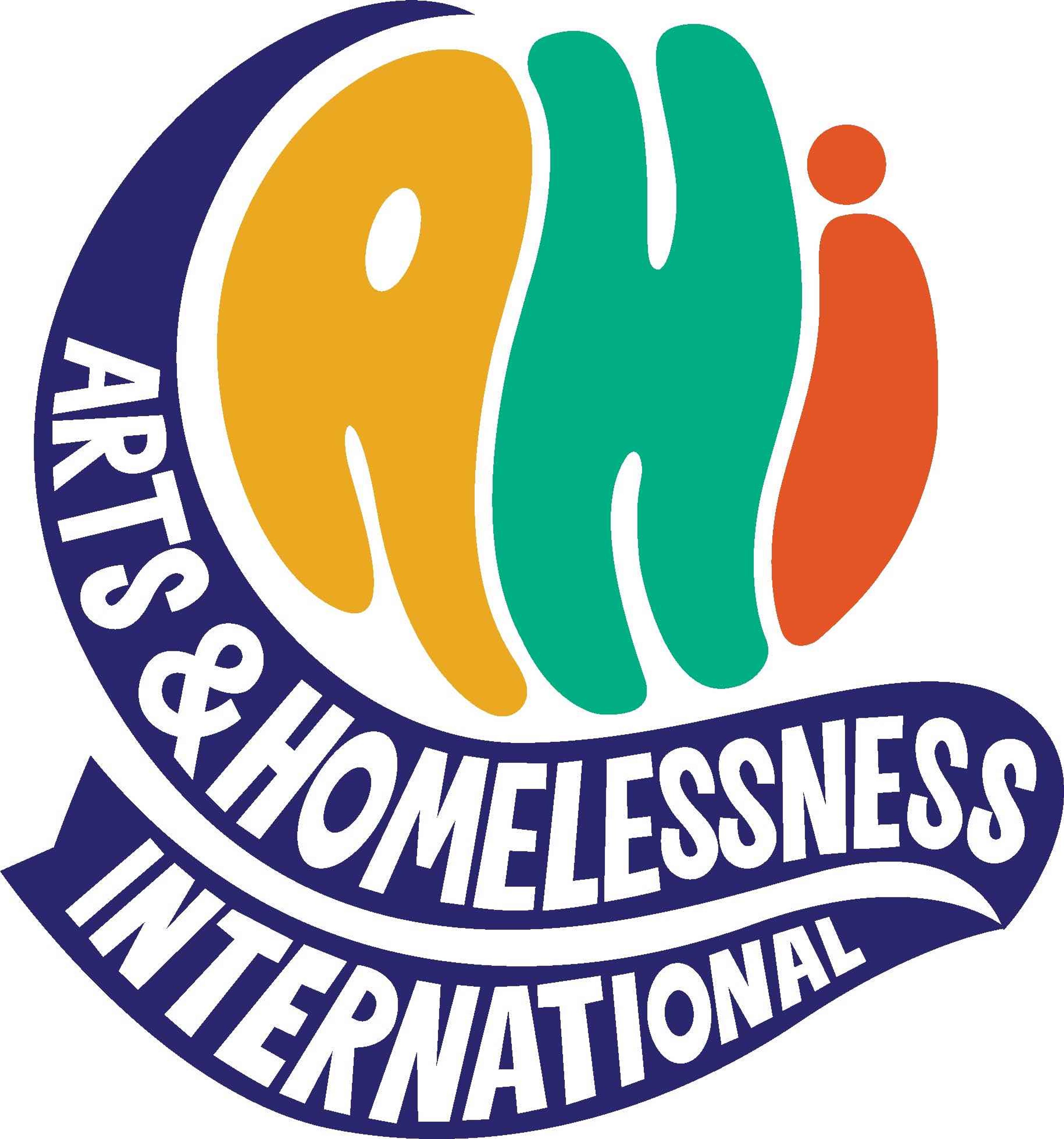Yuliia Sholtoian, a Ukrainian refugee in Scotland: “Edinburgh is a multi-ethnic city. I love that no one here cares that you’re different”
By Nick Eddinton
- News
22-year-old Yuliia Sholtoian fled from Ukraine to Scotland after shelling started after the country was invaded by Russia back in February. She left behind a normal life. She talks to Nick Eddinton, a young Ukrainian journalist who has also become a refugee in Scotland, about her journey and her future.
More than five months have passed since the beginning of the Russian invasion of Ukraine. Millions of Ukrainians have become refugees during this time while also losing their homes and loved ones. The Russian army’s daily missile strikes continue the attack on Ukrainian cities. Southern Ukraine has become one of the main military hot spots in the country. I spoke to a girl from Mykolaiv, who was woken up on the morning of 24 February by the sound of artillery shelling and news of Russia’s military invasion of her hometown. Yuliia Sholtoian (22)had a long way to evacuate to Scotland, but many of her friends and family remained in Ukraine.
Until 24 February, I was a recruiter at an agricultural firm in Ukraine. I lived a normal life, and I regret very much that I did not appreciate the routine that I had in Ukraine. I met friends, saw my family, and even thought about quitting my job. Now I realise that I had a great life.
I remember the first morning of the invasion. I was in my flat, where I lived alone. I woke up at half past four in the morning because of the sound of explosions. It was hard for me to understand what it was. My colleagues at work started messaging me, and I couldn’t get back to sleep for a long time because of the shockwave that was shaking my windows. Later that day, I started packing my bags. The first explosions were at Mykolaiv airport. All morning I was on the phone, wondering what to do next. A few hours later, news began to appear that a “special operation”, the war, had begun. I was shocked. I only went to work that day because I was scared of being alone. Then I decided to buy groceries in a store that was full of people. I fuelled my car a few days before the invasion and had a full tank.
I decided to leave in a few hours. On the same day, I went to work where there were two of my superiors and colleagues, one of whom called and told me to evacuate the city. At that moment, I called my dad and told him we had to leave.
I had a long way to go till Scotland. I found news about the visa program for Ukrainian refugees,Home Ukraine, on 18 March and told my parents about it. At first, I went to a friend in Poland, and after that, I was in Lithuania and Holland. I waited 24 days for a visa to Scotland, and all this time was hard for me. I even remember the moment when I thought about giving up and going back to Ukraine.
I arrived in Scotland on April 20th. The first night, I stayed in a hotel near the airport, where I was lodged by volunteers, and the next day I was settled in a house that was located in Edinburgh. It was like a dorm.

The Scottish Government, which sponsors a program to support refugees from Ukraine, provides professional assistance and volunteers who are well received by Ukrainians arriving in Scotland. Many Ukrainians need to be quickly integrated into Scottish society and find new friends, conversation outlets and other opportunities to communicate. Yuliia quickly found work in Scotland and was working hard to secure a good future for herself. This is important to her, as is finding new friends with whom she can communicate and spend time together.
Before the war, I went to Scotland twice: in 2019 and 2020 I worked on a farm near Dundee. I also visited Edinburgh once. I liked this city at the time with its magical and ancient atmosphere. I am very inspired by it.
The first week, I visited a meeting of Ukrainiansin Edinburgh. Before that, I met a girl Nastya, who was born in Kherson city and has lived in Edinburgh for more than three years. She invited me to a club of Ukrainians where I could get some help, and then organised a meal for Ukrainians. We helped in the kitchen. On the third day, I found a job in Edinburgh. Before that, I wrote a Facebook post saying I was looking for a sponsor and an opportunity to start working. A woman, who works as the Regional Manager of the outsourcing company OMNI group, texted me. We spent some time talking and discussing the terms of my work. She even offered to help me with housing for the first time.
I was happy to find a job. It was important for me to get back into the routine. I remember the first month since the war started when I was just watching the news, having a complicated relationship with my family. My life just faded away. I found friends in Edinburgh. We are friends with some colleagues outside of work, and I also met a Ukrainian girl with whom we became close friends.
There are a lot of different people in Scotland. Edinburgh is a multi-ethnic city. I love that no one here cares that you’re different. Everything is very quiet. I’m not worried that anyone would think that something is wrong with me. I feel free in this town where people are from everywhere.
It’s hard for me to talk about plans. I just want to live in the present. I have small plans, but no major ones. I am working and enjoying my life right now.

Now it is difficult for Yuliia to talk about the war in Ukraine. Many of her friends and loved ones have remained in Ukraine, where battle breaks out every day. But Yuliia considers it important to talk about Russian aggression and support Ukraine every day. She also wants to wish strength to the other girls who make the hard decision to evacuate to another country.
When I talk about Ukraine, I feel incredible pain. Every morning begins with news and tears. My hometownis bombed every day. I have a friend in this city who recently had a baby. It’s so difficult to imagine. I understand that she needs to find a safe place. I have colleagues, friends and family in Mykolaiv. I am very worried about everyone. I miss my city and the life that was there. Every day I think about it.
It is very important to talk about Ukraine. Because it is impossible to keep silent about the war in my country. I know I’m not doing enough, but I am trying to tell everyone about the situation there. I had a case at work. A young Scottish girl said that the war in Ukraine was over. I was surprised and told her that it was not so. I showed some videos of the shelling of a shopping mall in Kremenchuk. I accept the fact that she is not able to understand all the politics. But it is very important to talk about the war in Ukraine and explain it to people.
I want to wish the girls, who have fled the war to Scotland, patience. Do not be upset. It is important to understand where you are going and what you want. When you go to another country on your own, you have to rely on yourself. Keep the will, work and try for yourself.
Support Ukraine now
The large-scale Russian invasion of Ukraine has been going on for several months. During this time, the Russian occupiers have destroyed hundreds of residential buildings. About 5 million Ukrainians became refugees. The lives of people in the occupied territories is endangered. The elderly, children, people with disabilities, men and women don’t have access to clean drinking water, mobile and internet connection, food or a safe place to live. Find out how to help here.
Nick Eddinton is a journalist from Kyiv who moved from Ukraine to Scotland after the beginning of the Russian invasion. He works as an advocate for Ukrainian refugees with the organisation Help Ukraine Scotland and, through his journalism, seeks to shine a light on how the war has affected already marginalised people in Ukraine.


